New Product Development at Cornell
Product diversification is key to the sustainable growth of the maple industry. Through partnerships with food science researchers and industry collaborators, the Cornell Maple Program works to develop a wide variety of new products that feature maple as a significant ingredient. By developing new product concepts and solving technical challenges, Cornell removes barriers to production and accelerates the process of bringing novel maple products to market.
Maple syrup contains flavors, chemical compounds and nutritional characteristics that can be used to make a wide variety of food, beverage and health care products. New product development begins by establishing a concept and conducting background research. This initial work is followed by a pilot study to demonstrate the feasibility of the product concept. Further experimentation with formulations and processing methods is then conducted to determine the necessary steps for achieving shelf-stability and obtaining scheduled process approval. At this stage partnerships with outside experts are formed to scale the concept to a commercial level and conduct market tests.
Information generated through this work is encapsulated in the Cornell Maple Notebook series, technical bulletins, and other digital content which is freely available on this website. Questions, comments, and ideas are welcomed through the Contact Us page.
Value-Added Production Regulation Fact Sheet
A new Cornell Maple Program fact sheet dives into the basics of the regulations that producers must adhere to in order to produce certain products for sale. Consult with this document if you are at a loss of where to start to ensure that you are in compliance with state and federal regulation for production of packaged foods and beverages. This document does not cover regulation of foods and beverages produced for on-site consumption such as at farmers markets and fairs.
Jump To:
![]() Maple Beer
Maple Beer
![]() Maple Wine
Maple Wine
![]() Maple Spirits
Maple Spirits
Mappleau (Maple Liqueur)
![]() Maple Sports Gel
Maple Sports Gel
![]() Maple Sports Drink
Maple Sports Drink
![]() Bottled Maple Sap
Bottled Maple Sap
![]() Maple Soda
Maple Soda
![]() Maple Kombucha
Maple Kombucha
![]() Maple Chocolate
Maple Chocolate
![]() Hot Maple Milk
Hot Maple Milk
![]() Maple Marshmallow
Maple Marshmallow
![]() Maple Nut Spreads
Maple Nut Spreads
Maple Hazelnut Spread
![]() Maple Skin Care Products
Maple Skin Care Products
Maple Lip Balm
![]() Make Products with Buddy Syrup
Make Products with Buddy Syrup
Icons made by Freepik from www.flaticon.com
Maple Beer

The growing craft beverage industry presents an opportunity to create mass appeal for maple flavored beers. Working with students and researchers at Cornell University, the maple team is developing recommendations and best practices for brewing with maple syrup.
This spring, the Cornell Maple Program engaged a group of seniors in the Department of Food Science to research basic maple brewing principles and develop sample recipes for two styles of ale. Their work provides details on methods for maximizing maple flavor and formulating a high quality brew. The complete report can be viewed at the link below.
Maple Wine

Being located in the Finger Lakes wine region and with great access to cutting edge wine research at Cornell University, it was only natural for the Cornell Maple Program to expand product development research into wines. Early research into maple wine production resulted in recipes, processes, and legal know-how for pure maple wines, that is, a mead-like beverage where maple is the only source of fermentable sugar. Cornell Maple Program worked with seniors in the Department of Food Science to produce a guide for pure maple wine production, including extensive insight into the state and federal level licensing needed for new wine-makers to enter the market (access below). Future resources, such as the upcoming Fermentation Notebook, will expand upon the recipes and production techniques suggested in this guide.
Mappleau: A Maple Liqueur
Mappleau is a maple liqueur that is modeled after Pommeau production techniques. The sweet digestif, or after-dinner drink was developed by Christian Mercado, MFS. It is made from distilled maple spirits (maple brandy) and pure maple syrup. More information coming soon.
Maple Sports Gel
The sports nutrition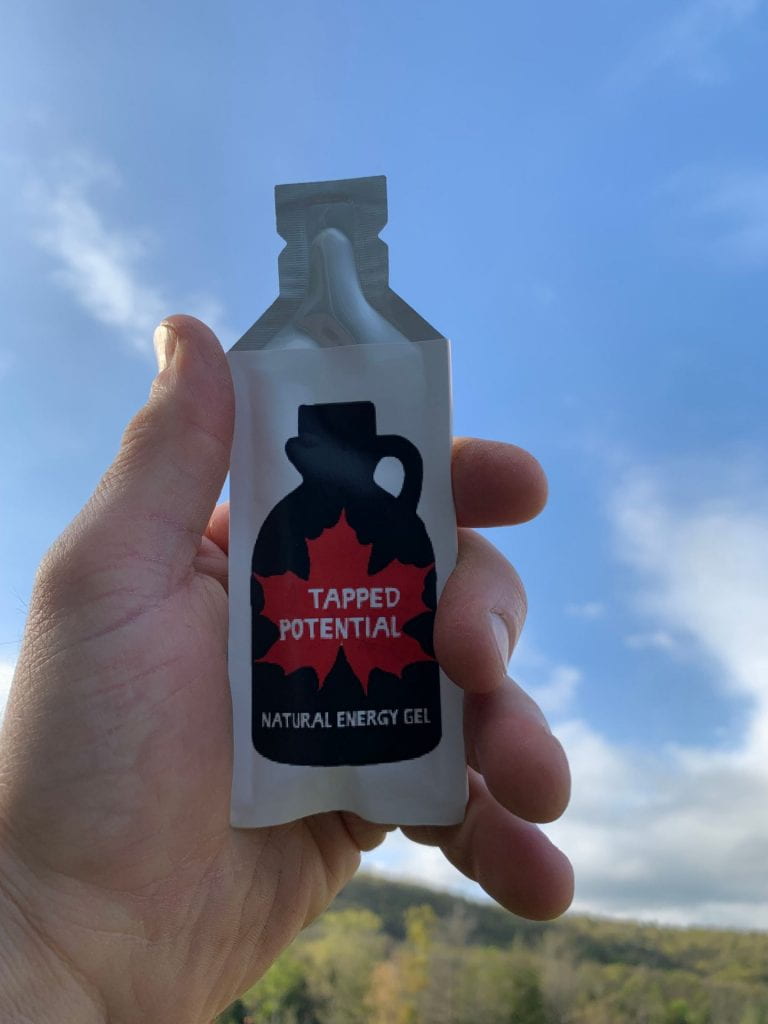 market is a growing industry with potential opportunities for maple products. One area well-suited to maple is the sports gel product segment. This winter the Cornell Maple Program worked with the Cornell Department of Food Science to develop a maple sports gel formulation. The resulting product is a maple syrup-based nutrition supplement in a single serve foil pack with added electrolytes and a favorable flavor. For more information click the link below:
market is a growing industry with potential opportunities for maple products. One area well-suited to maple is the sports gel product segment. This winter the Cornell Maple Program worked with the Cornell Department of Food Science to develop a maple sports gel formulation. The resulting product is a maple syrup-based nutrition supplement in a single serve foil pack with added electrolytes and a favorable flavor. For more information click the link below:
The article (accessible above), Running on Maple by Aaron Wightman, features a novel way to use maple syrup in the endurance sport industry – gel packs designed for long distance runners. The few additional ingredients compliment the maple flavor while enhancing the suitability for sports fueling and recovery.
A DIY at home formulation is presented in video format below. This version of the recipe is great for endurance athletes who choose to utilize refillable energy gel flasks.
Maple Sports Drink
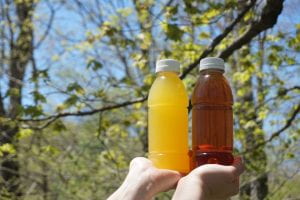
In-line with other forays into sports nutrition products, Cornell Maple Program has developed two recipes for Maple Sports Drinks. Maple is an ideal sweetener for the growing “natural alternatives” functional beverage market because of its high antioxidant and mineral levels, and eco-friendly source. These formulations have been athlete tested and approved by the Cornell men’s and women’s Cross Country and Track & Field teams. Access the recipes, regulatory information, and more in the bulletin below.
Bottled Maple Sap


Bottling and selling maple sap has the potential to increase sales revenue while providing a functional beverage for consumers. This bulletin covers the cost and health benefits of maple sap as a bottled beverage, preservation and packaging methods, an overview of commercial preservation methods for small- and large-scale production, regulatory guidelines, and an overview of production procedures using equipment common in maple sugarhouses.
Maple Soda

Carbonated beverages are a massive market segment that remains largely untapped by the maple industry. While mainstream soda companies have seen declining sales, the craft beverage industry is undergoing rapid growth. Demand for specialty, artisanal, and small-batch sodas is largely driven by the use of “all-natural” sweeteners such as pure cane sugar, stevia, and honey. Craft sodas capture a premium price at market- often three times as much as traditional sodas. In cooperation with the Cornell Department of Food Science and the Food Venture Center, the Cornell Maple Program has developed guidance to help maple producers break into this profitable industry. To learn more, access the document below.
Maple Kombucha

The first edition of the Kombucha Chapter of the upcoming Maple Fermentation Notebook is now available. This chapter includes highly detailed information for tweaking your basic recipe, troubleshooting, and meeting statewide and federal rules and regulations. If you are only interested in a basic recipe, that document is still available below:
Maple Chocolate
Information coming soon!
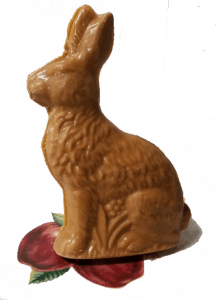
Hot Maple Milk
Hot Maple Milk is a warm winter beverage modeled after hot cocoa. The document below contains production information for a powdered beverage mix designed to be compatible with single-serve packet packaging.
Maple Marshmallow
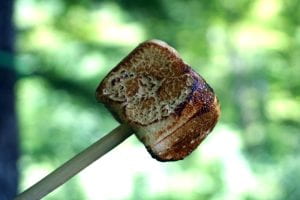
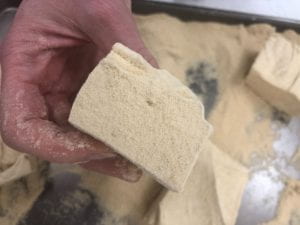
The first in a series of Maple Marshmallow fact sheets and bulletins is now available. This bulletin, Basics of Maple Marshmallows, covers general information about marshmallow composition, a recipe for gourmet maple marshmallows, regulatory information, packaging and food additive options, market projections for gourmet marshmallows, and pricing information for the product. Additionally, we have provided an abbreviated version with just the recipe and instructions for easy printing. Upcoming fact sheets in this series will include Dehydrated Maple Marshmallows and Maple Marshmallow Spread.
Maple Hazelnut Spread


The product described in the bulletin below was inspired by Nutella and similar hazelnut spread products. The bulletin includes recipes for both a simple Maple Hazelnut spread that highlights the flavor of maple, and a Cocoa flavored version that would be more familiar to Nutella consumers. Both products were very well received during consumer testing at Maple Weekend events.
Maple Lip Balm
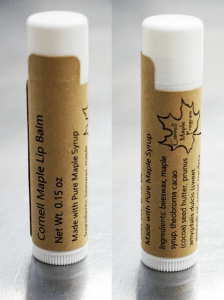
In anticipation of the upcoming Maple Skin Care and Bath Products Notebook, the Cornell Maple Program has pre-released a recipe and relevant regulatory information for a basic maple lip balm. The recipe in this bulletin is one that was consumer tested on campus at Cornell University with positive results.
Producing lip balm for sale requires compliance with federal regulations. For more information, please read the Lip Balm Regulatory Information bulletin.
Note, these documents are paired; the recipe referred to in the Regulatory Information document is that of Maple Lip Balm document.
Please note: these documents are for educational purposes only. The business owner has sole responsibility for the products they manufacture for sale. This responsibility includes ensuring compliance with local regulations and evaluating product safety, stability, and performance.
Adding Value to Buddy Syrup
The eye (and tongue) of the beholder
The Cornell Sensory Evaluation Center developed flavor wheels for Grade A and processing Grade syrups, including “buddy”, “sour”, and “dark/acrid” (syrups associated with burnt/bitter flavor) maple syrups. This study also determined the importance of sensory (e.g. flavor) and non-sensory (e.g. sugar crystals) attributes in maple syrup using a consumer Kano Analysis. This technique is frequently used by product developers to determine which attributes are required for a product to fulfill its function (MUST HAVE), separate its performance from others (DRIVER), provide premium product experience to consumers (DELIGHTER) and which are not important to product performance and identity (NOT IMPORTANT).
Buddy Maple Syrup in Value-Added Products
Sap harvested from maple trees late in the sugaring season or spring of each year is known to develop buddy off-flavors during syrup production. This syrup cannot be bottled and sold as “Grade A” maple syrup and can only be sold in bulk as a “Processing Grade” food ingredient. However, buddy maple syrup can still be used to produce a range of maple products. This article reviews the composition of buddy maple syrup and contains overviews of production procedures for a selection of value-added products, including beer, wine for distillation, root beer, and mustard.


